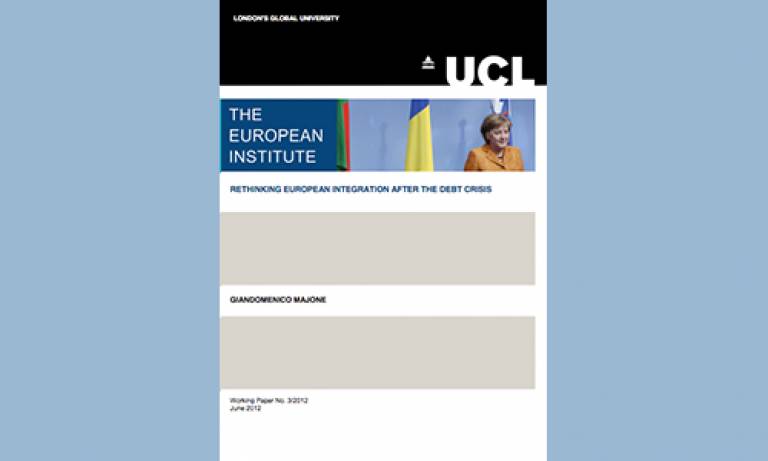Rethinking European Integration after the Debt Crisis
1 June 2012

Giandomenico Majone discusses how the Eurozone crisis could and should be used to identify the structural flaws of what has been called the "Community Method", broadly understood, and to see how the integration process could continue - if necessary along different lines.
A decade and a half after his groundbreaking arguments on the regulatory nature of the European Union and the case against the democratic deficit, Giandomenico Majone argues in this recent Working Paper, presented at UCL in June 2012, that the problems revealed by the crisis of monetary union, and the crisis itself, have their roots in the method of integration methods itself. The crisis, he argues, reveals the fundamental structural flaws in the European edifice – flaws concealed in the past by what he had previously called the prevailing “political culture of total optimism” (Majone 2011). In a severe attack on the democratic deficit he now diagnoses as being in full swing, Majone analyses these integration methods and beliefs, the limits of a one-size-fits-all policy model and the fragility of supranational institutions, before reflecting on the implications for teaching European integration after the debt crisis.
Author: Professor Giandomenico Majone (European University Institute)
 Close
Close

